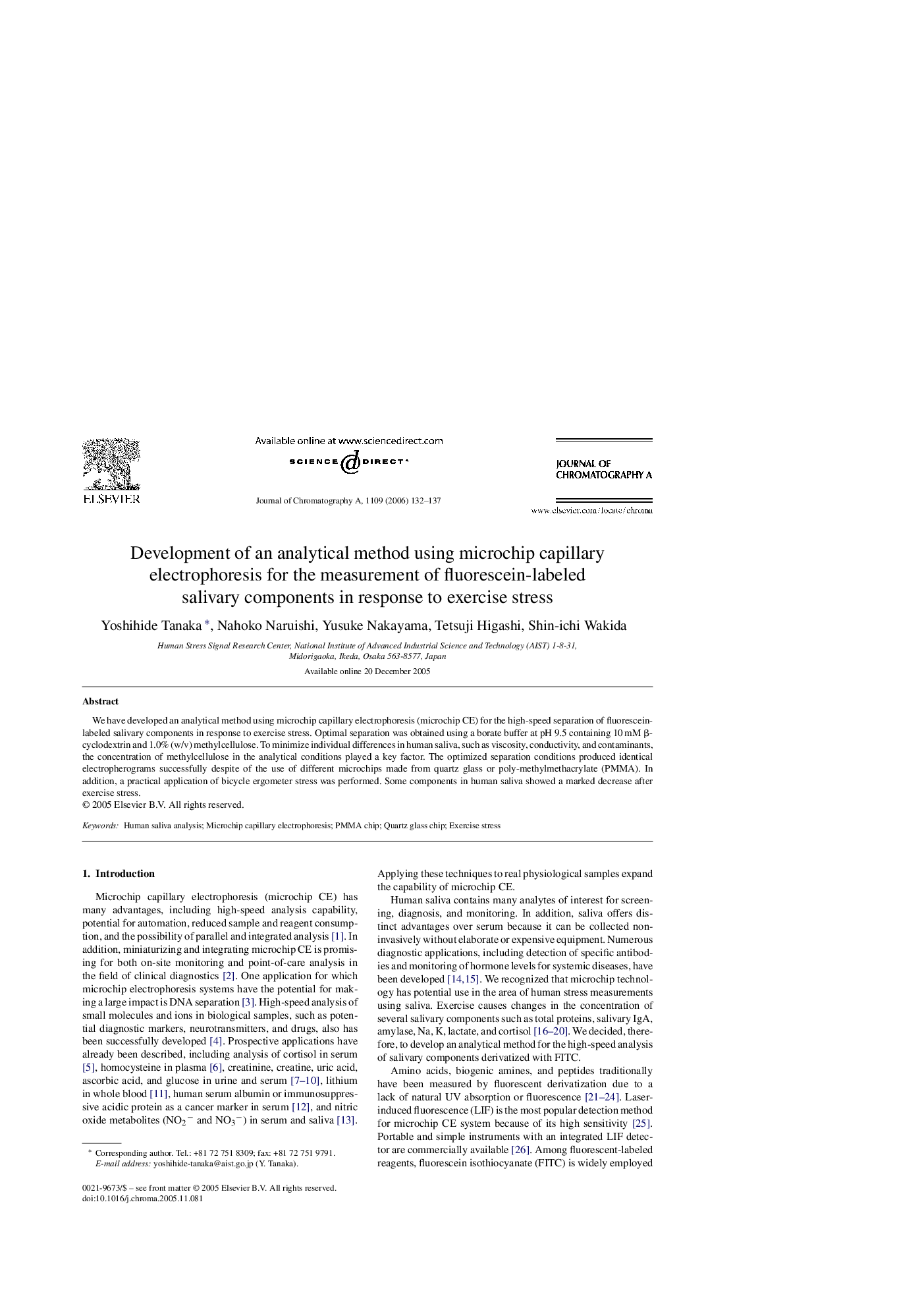| Article ID | Journal | Published Year | Pages | File Type |
|---|---|---|---|---|
| 1210535 | Journal of Chromatography A | 2006 | 6 Pages |
We have developed an analytical method using microchip capillary electrophoresis (microchip CE) for the high-speed separation of fluorescein-labeled salivary components in response to exercise stress. Optimal separation was obtained using a borate buffer at pH 9.5 containing 10 mM β-cyclodextrin and 1.0% (w/v) methylcellulose. To minimize individual differences in human saliva, such as viscosity, conductivity, and contaminants, the concentration of methylcellulose in the analytical conditions played a key factor. The optimized separation conditions produced identical electropherograms successfully despite of the use of different microchips made from quartz glass or poly-methylmethacrylate (PMMA). In addition, a practical application of bicycle ergometer stress was performed. Some components in human saliva showed a marked decrease after exercise stress.
